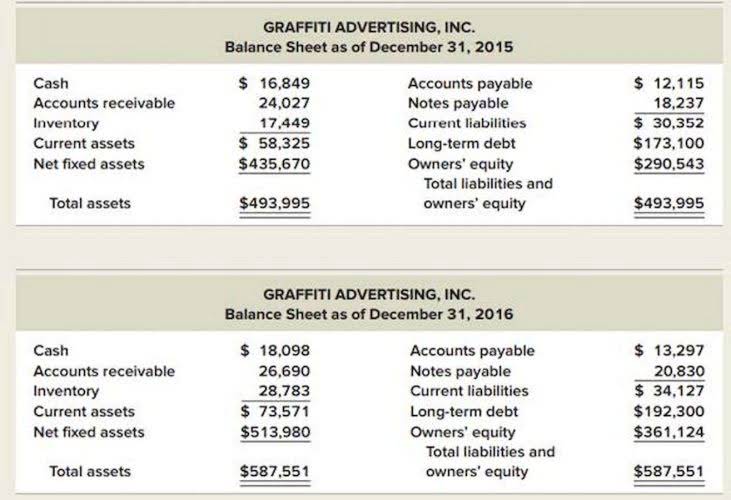
However, this can lead to a focus on meeting short-term goals and targets at the expense of long-term growth and sustainability. If a company follows an accounting principle, it should keep following the same principle until a better one is found. If the consistency principle is not followed, the company will jump around here and there, and financial reporting will be messy. As a result, it would be difficult for investors to see where the company has been going and how it is approaching its long-term financial growth.

Accounting Principle # 7. Materiality Principle:
If the net realizable value of the inventory is less than the actual cost of the inventory, it is often necessary to reduce the inventory amount. For the past 52 years, Harold Averkamp (CPA, MBA) has worked as an accounting supervisor, manager, consultant, university instructor, and innovator in teaching accounting online. My Accounting Course is a world-class educational resource developed by experts to simplify accounting, finance, & investment analysis topics, so students and professionals can learn and propel their careers. Shaun Conrad is a Certified Public Accountant and CPA exam expert with a passion for teaching. After almost a decade of experience in public accounting, he created MyAccountingCourse.com to help people learn accounting & finance, pass the CPA exam, and start their career. Meanwhile, in other countries, the IFRS might be compulsory for only certain types of companies, like banks or those over a certain valuation.

Accounting Principles and Business Decisions
- The difference between assets and liabilities, such as stockholders’ equity, owner’s equity, or a nonprofit organization’s net assets.
- These principles provide necessary and required information to accountants or stakeholders.
- Understanding accounting principles is essential for anyone who wishes to work in finance or accounting.
- By following these principles, businesses can ensure that their financial statements are reliable, consistent, and useful for decision-making.
- Overall, accounting principles are essential for businesses to maintain accurate financial records and communicate financial information to stakeholders.
- The inventory of a manufacturer should report the cost of its raw materials, work-in-process, and finished goods.
- The accounting principles used in preparing footnotes ensure that the information presented is relevant and reliable.
In many other countries, these guidelines fall to the IFRS, established by the International Accounting Standards Board (IASB). The most important feature of the matching concept is that there should be some positive correlation between respective revenues and costs. The accrual basis is mandated by Generally Accepted Accounting Principles (GAAP) for publicly traded companies in the United States, ensuring uniformity in financial statements. Similarly, the International Financial Reporting Standards (IFRS) emphasize accrual accounting, underscoring its global importance.
Economic Entity Principle
The economic entity principle distinguishes between personal and business finances. It treats the firm as a separate accounting entity, limiting the mixing of personal and corporate assets and liabilities and improving financial transparency. Regulations set forth by these entities help ensure that financial information is accurate, transparent, and consistent. By following these regulations, companies can build trust with their stakeholders and demonstrate their commitment to ethical trial balance business practices. Industry Practices Constraint – some industries have unique aspects about their business operation that don’t conform to traditional accounting standards.
📆 Date: May 3-4, 2025🕛 Time: 8:30-11:30 AM EST📍 Venue: OnlineInstructor: Dheeraj Vaidya, CFA, FRM
By using historical costs, the accountant’s already difficult task is not further complicated by the need to keep additional records of changing market value. Thus, the cost concept provides greater objectivity and greater feasibility to the financial statements. The cost principle requires that assets be recorded at Car Dealership Accounting their exchange price, i.e., acquisition cost, or historical cost. Historical cost is recognised as the appropriate valuations basis for recognition of the acquisition of all goods and services, expenses, costs and equities.
- The conservatism principle, or prudence, encourages caution in financial reporting when faced with uncertainty.
- Conservatism principle encourages the accountant to report more significant liability amount, lesser asset amount, and also a lower amount of net profits.
- Companies that follow GAAP are more likely to comply with legal and regulatory requirements.
- For example, if there were significant write-downs, a breakdown of how depreciation was calculated should be provided.
- We begin with brief descriptions of many of the underlying principles, assumptions, concepts, constraints, qualitative characteristics, etc.
- These principles guide accountants in financial analysis and ensure that the quality of financial information a company has is improved as efficiently as possible.

Thus, companies in these what is accounting industries are allowed to depart from GAAP for specific business events or transactions. It’s important to have a basic understanding of these main accounting principles as you learn accounting. This isn’t just memorizing some accounting information for a test and then forgetting it two days later.
